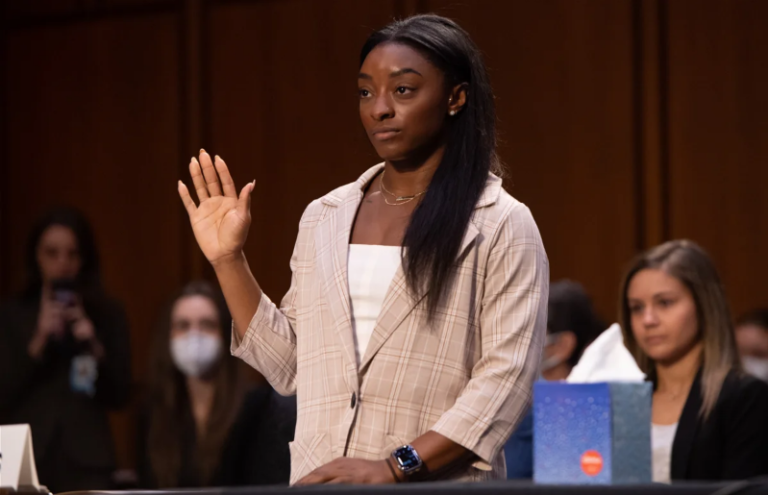Three years after gymnastics superstar Simone Biles put the mental health of athletes centre stage at the Tokyo Olympics, this year’s Paris Games will demonstrate how greater awareness has translated into better care and support.
Biles famously pulled out of most of her events in Tokyo mid-Games after struggling with mental health problems and the “twisties” – a disorienting feeling while in mid-air that is known to affect some gymnasts.
In the run-up to the start of Paris 2024 on July 26, local organisers, the International Olympic Committee (IOC) and international sports federations have been keen to stress that lessons have been learned.
“Seventy per cent of Olympians only get one Olympic experience. We want to try to make sure this is the best experience they could possibly have,” said Kirsty Burrows, head of safe sport at the IOC.
For the first time ever at an Olympics, competitors in Paris will have access to a “mindfulness and relaxation area” above the main gym in the village, called the Athlete365 Mind Zone.
Competitors will be offered virtual reality headsets for meditation, sleep pods and even art activities, all in a low-lighting environment designed to be soothing and quiet.
“It’ll be very Zen, like a futuristic spa,” Burrows added.
Also in the village, athletes will have an alcohol-free bar and social areas to help them kick back, as well as guides on how to maintain good mental hygiene by avoiding too much time on screens
“In the same way that no athlete would think of stuffing themselves with burgers and confectionery before a competition, it’s not good to stuff yourself with videos on social networks by binge-watching TikTok or Instagram,” Paris 2024 health coordinator Laurent Dalard told reporters in March.
A mental health helpline in 70 languages will also be available to all Olympic and Paralympic athletes.
Around 90 national sporting teams will bring their own mental health welfare officers, using a new type of Games accreditation which has only been available since the Beijing Winter Olympics in 2022, Burrows said.
Research suggests that elite sports people suffer from mental health disorders in around the same proportions as the general population, experts say.
But Dalard stressed that they were “more vulnerable to situations such as anxiety disorders or depression, given their complicated lives and the intense pressure they face”.
According to Marion Leboyer, a psychiatrist and founder of FondaMental, a French research foundation, “around one athlete in three experiences symptoms of a mental health problem”.
Long a taboo subject, many of them are now opening up about their struggles thanks to the revelations of stars such as Biles, Japanese tennis player Naomi Osaka or Australian swimmer Ian Thorpe.
That has trickled down into lesser-known sports.
